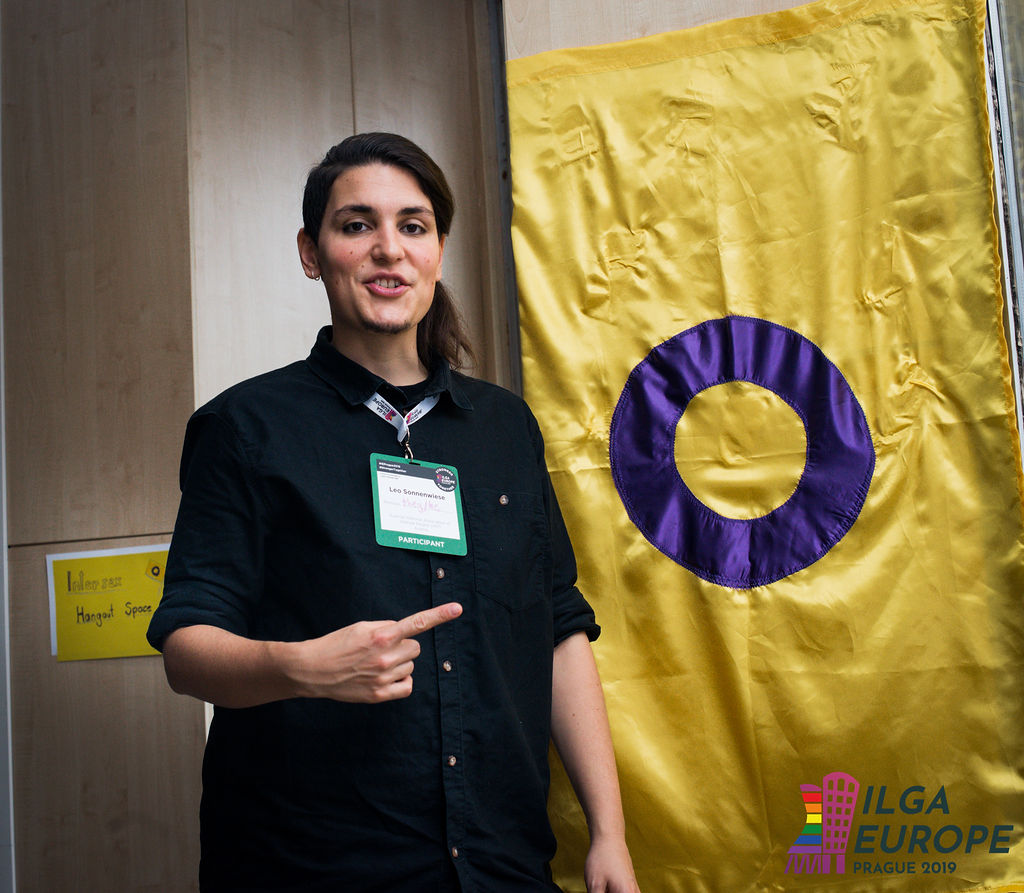How to be a great intersex ally

Even within the LGBTI community, intersex people continue to be overlooked, and that’s something we urgently need to change. Here are our top tips for getting on the right page and supporting the human rights of intersex people!
In a world where the overwhelming majority of people and governments only know and accept two sexes (‘male’ and ‘female’) the existence of intersex people and their bodies is barely recognised. Instead, healthy intersex bodies are considered to be a medical problem that needs to be fixed by surgical, hormonal, other medical and sometimes psychological means. Intersex people face human rights violations, including having their bodily integrity compromised as infants, when doctors decide to ‘fix’ them.
“I have to say that I exist, I have to say that I’m intersex and I have to do things in order for other intersex people and future generations not to have to go through what I’ve been through,” Audrey Aegerter of InterAction Suisse told us in an inspiring Voices of ILGA-Europe interview.
Today, thanks to the brave and dedicated work of intersex activists like Audrey across Europe, the silence and lack of awareness that previously surrounded intersex issues have been replaced by increased interest from NGO allies and policy-makers, more media coverage and strong political statements.
When LGBTI activists find out about the life experiences of the intersex people in our community, often their first reaction is to ask: How can I become an intersex ally? What can I do?
There are some easy things that you can do that really help:
1. Talk about it!
Lack of knowledge is one of the key reasons for the human rights violations and the discrimination intersex people face. By spreading the word about the existence of intersex people and the human rights violations and discrimination they face, you work towards making society a safer and more welcoming space for intersex people. This includes making intersex people’s existence visible by mainstreaming intersex issues in all areas of life and politics. So, read up on the experience of intersex people and start some conversations!
2. Create a safe space for intersex people
It is very likely that you already have intersex people in your organisation, at your work place or even amongst your friends and family; therefore creating a safe space for them to come out is crucial. Those individuals might not feel safe enough to come out yet, but if they know they are in a space of acceptance, they just might share their identity with you. Let them know it’s okay by sharing your recognition of the issues intersex people face.
3. Integrate the ‘I’ into your work
Inform your colleagues and the members of your networks on intersex human rights issues. As a first step, you might consider asking intersex activists if they can provide training or advice for you. This will help you better understand intersex issues, the challenges intersex organisations face and how you can effectively work for the improvement of intersex people’s situation in your country.
4. Support intersex activists and NGOs
Being visibly intersex is still a very difficult task. Despite this fact, the number of intersex activists and organisations is growing but they all work with almost none or very limited funding. Becoming an intersex activist most often means having to forfeit the chance of having a regular income. Due to the lack of funding, you are expected to provide professional and highly specialised expertise for free. Helping intersex activists and NGOs financially to perform their task is key to ensuring they can share the unique expertise they have.
5. Help create new alliances
Work with intersex NGOs and help them to create new alliances. Intersex human rights organisations are the best contact point for getting up-to-date information on the human rights violations faced by intersex people. They have long-term experience in advocating for intersex human rights.
6. Be a promoter
Use your social media to promote the statements of international human rights bodies on intersex. For instance, encouraging all relevant stakeholders to implement the recommendations of the Council of Europe’s Human Rights Commissioner will be very beneficial.